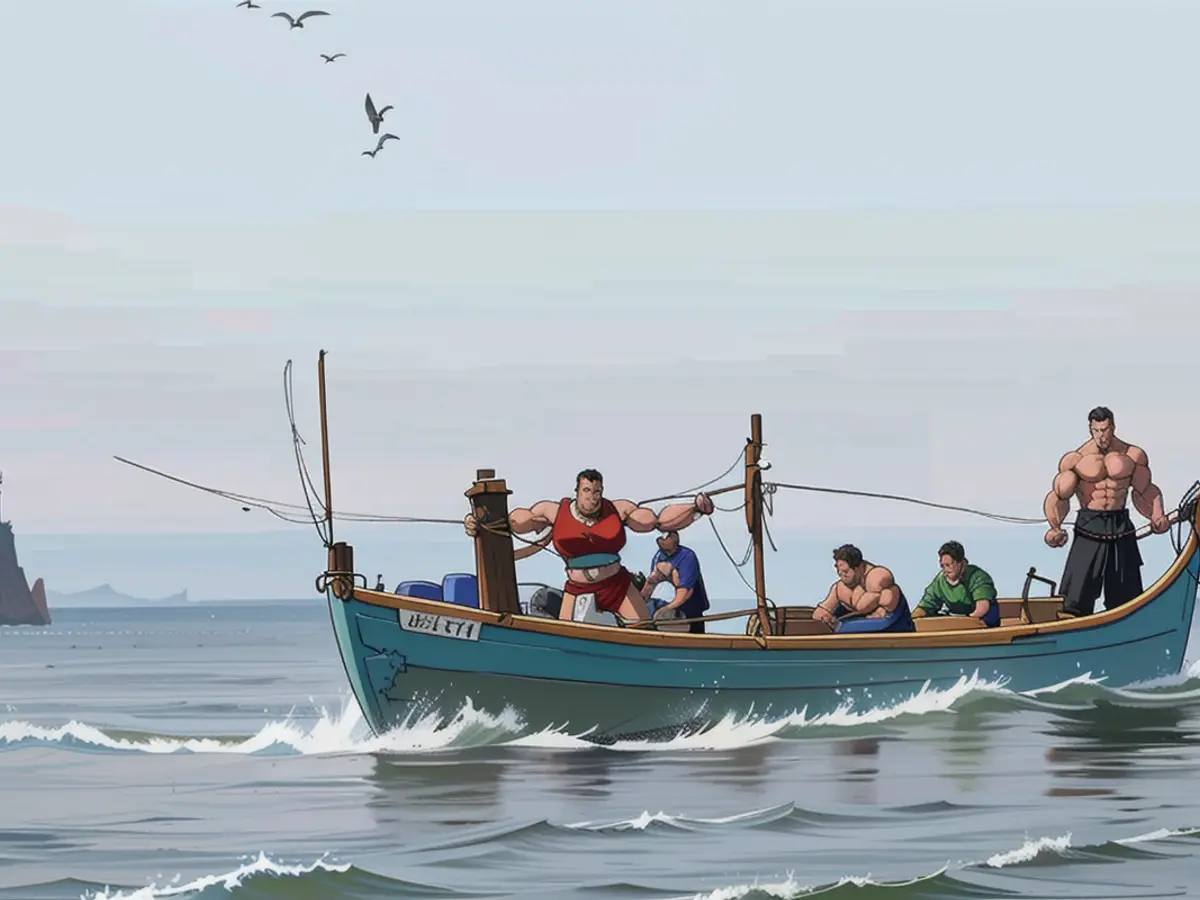Fishermen operating in the North Sea could potentially decrease their catch of herring and cod.
Fishers from Germany's Northern waters face reduced catches in upcoming years. The EU has decided to reduce herring and cod quotas substantially. Berlin would've preferred even steeper decreases for cod, but there's a slight reprieve for plaice and saithe.
German fishers can expect to harvest less herring and cod next year than they have in the past. This decision was reached in the early hours of the EU's fisheries ministers meeting regarding fishing quotas for the North Sea and North Atlantic. The herring catch quota will decrease by 27 percent to approximately 35,600 tonnes, while the cod quota will drop by 22 percent to around 1,700 tonnes, as announced by the Federal Ministry of Food and Agriculture.
There's also a considerable decrease in the catch limit for mackerel in the western waters of the North Atlantic. German fishers will be allowed to catch around 9,600 tonnes in the coming year, a nearly 30 percent decrease compared to this year. On a positive note, there's an 11 percent increase in catch limits for plaice and saithe in the North Sea, allowing for over 6,000 tonnes of plaice and 6,666 tonnes of saithe to be caught.
The reason behind these limitations is the deteriorating state of various marine stocks in European waters. Overfishing, climate change, and other factors are affecting marine life extensively. Each year, the EU Commission determines fishing quotas based on scientific recommendations, with the aim of preventing excessive pressure on these stocks. The final decision on the fished stocks belonging only to EU countries rests with the EU fisheries ministers. Quotas for other seafaring areas require negotiations with third parties like the UK or Norway.
Greenpeace and the German environmental organization BUND criticized the fishing quotas, with Greenpeace stating, "Overfishing in the North Sea remains largely unchecked in 2025." The German Environmental Aid (DUH) also disagreed with the North Sea herring fishery quotas, considering them too high, while the ministry argued that the agreement was mainly based on scientific recommendations.
The EU's decision to reduce herring and cod quotas significantly affects German fishers. Despite Berlin's preference for steeper decreases in cod, the EU's decision includes a slight reprieve for plaice and saithe for the fishers within The EU.






